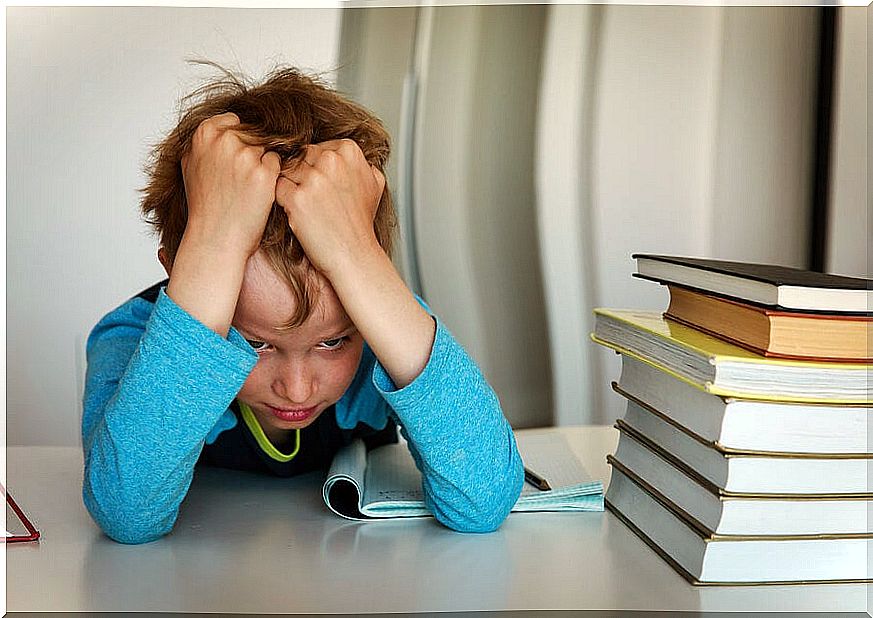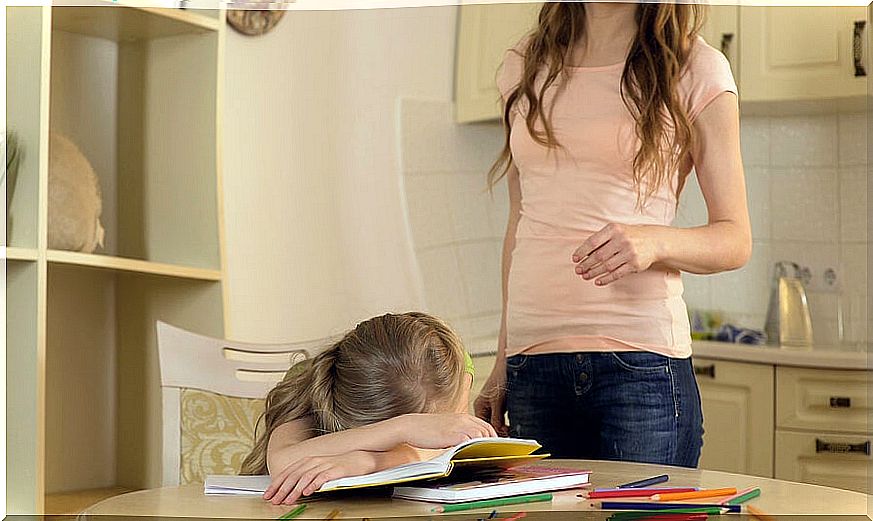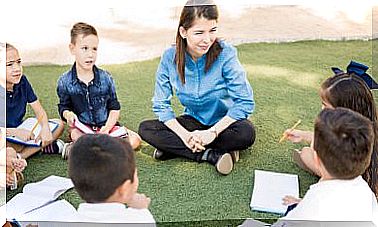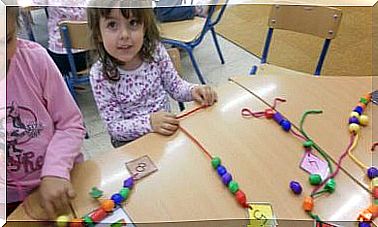Techniques To Cope With Academic Stress

School pressure is a phenomenon that affects many children equally. It is a state that is often due to an inappropriate way of coping with academic stress for a long period of time. This brings negative consequences, both physical and psychological. To overcome this situation, we present you some techniques to deal with academic stress.
Many children and adolescents develop symptoms of reaction to school pressures and begin to suffer from various ailments. Undoubtedly, the constant pace throughout the academic year, coupled with the strong tension they feel especially during exams, makes some feel particularly anxious and stressed.
Certainly, if they don’t get help, some children can experience bouts of depression and develop illness.
Techniques to cope with academic stress
1. Abdominal breathing
This first breathing exercise is the fastest and most effective method to reduce the effects of stress and anxiety on the body. To do this, you must teach your child to inhale through the nose, filling the belly first; subsequently, you must release the air through your mouth and deflate the belly.
Abdominal breathing helps, among other things, to lower the heart rate. It is advisable to practice this technique with your child at bedtime or at any other time that you consider appropriate.
2. Visualization: interior staircase
The second anti-stress technique that we present to you is based on the relaxing virtues of breathing and the beneficial effect of positive visualization. In the same idea as the previous exercise, the child can do the work sitting or standing; you just need to close your eyes and breathe deeply for 1-2 minutes.
So, you must imagine yourself descending a staircase, with steps numbered from 10 to 1, while entering through a door that leads to the sea, with a pleasant and peaceful atmosphere; This provides an internal state of serenity.

At this stage, positive visualization should begin, a very useful tool to combat stress in any situation and achieve a deep state of relaxation. Ask him to imagine feeling the smells or listening to the sound of the wind as the water caresses his skin.
In that instance, the child should breathe at the same rate as the waves for 1-2 minutes. Once you have felt these positive emotions, you should imagine walking back through the door and up the stairs, counting the steps from 1 to 10. Finally, you need to take a deep breath and open your eyes.
3. Progressive muscle relaxation
One of the techniques for coping with academic stress is progressive muscle relaxation. It is a very effective exercise to relax muscle tension and relieve stress. It is also an adaptation of dynamic relaxation that takes up the fundamental principle: put muscle groups in tension and then release them.
To begin, the child must make his face and mouth adopt a forced smile. Next, it is time to relax the muscles of the face three times in a row. Afterward, you have to clench your jaw tightly and slowly relax with your mouth open and your jaw distended.
Next, he has to extend his arms horizontally in front of him, to place his hands on his head with his arms extended. Ask him to reach up and let his arms drop down the length of his body.
The child should imagine that he is pressing an orange in his right hand, before throwing it to the ground and, at the same time, swinging his arm. You should move to the left arm after performing this exercise three times with the right.
Finally, you must not forget the legs and feet. The child should be standing barefoot and acting as if he is digging in the sand with his fingers.

4. Laughter therapy
Laughter helps the production of endorphins, the hormones of well-being. It is one of the best techniques to cope with academic stress and reduce tension.
In a laughter therapy session, different techniques are put into practice. You could opt for the ‘resist laughter’ technique with your child. This method consists of asking the child to look at another person without moving, and to remain calm by trying not to laugh, while the other person does their best to make them smile.
This relaxation exercise allows you to focus on the other person or the situation itself. Of all the techniques for dealing with stress, laughter is probably the most natural.
In short, these techniques for coping with academic stress teach children to handle situations autonomously. As a mother, it is advisable that you find the source of your child’s stress in order to ease the tensions.










